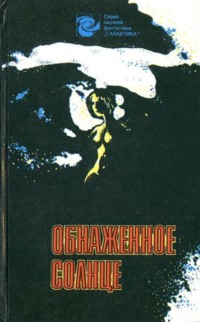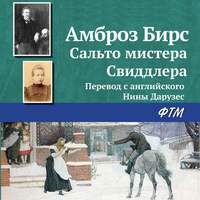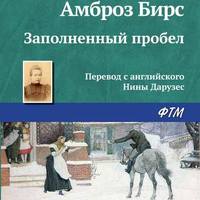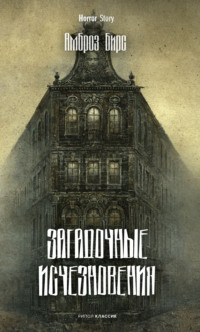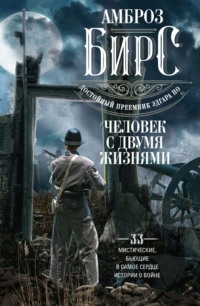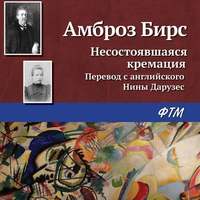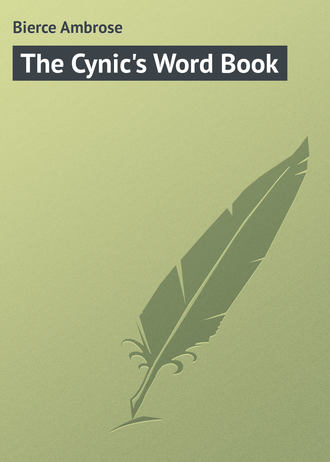 полная версия
полная версияThe Cynic's Word Book
BEHAVIOR, n. Conduct, as determined, not by principle, but by breeding. The word seems to be somewhat loosely used in Dr. Jamrach Holobom's translation of the following lines in the Dies Iræ:
Recordare, Jesu pie, Quod sum causa tuæ viæ Ne me perdas illa die. Pray remember, sacred Savior, Whose the thoughtless hand that gave your Death-blow. Pardon such behavior.BELLADONNA, n. In Italian a beautiful lady; in English a deadly poison. A striking example of the essential identity of the two tongues.
BENEDICTINES, n. An order of monks, otherwise known as black friars.
He thought it a crow, but it turned out to be A monk of St. Benedict croaking a text. "Here 's one of an order of cooks," said he — "Black friars in this world, fried black in the next." "The Devil on Earth" (London, 1712).BENEFACTOR, n. One who makes heavy purchases of ingratitude, without, however, materially affecting the price, which is still within the means of all.
BERENICE'S HAIR, n. A constellation (Coma Berenices) named in honor of one who sacrificed her hair to save her husband.
Her locks an ancient lady gave Her loving husband's life to save; And men – they honored so the dame — Upon some stars bestowed her name. But to our modern married fair, Who 'd give their lords to save their hair, No stellar recognition 's given. There are not stars enough in heaven. G. F.BIGAMY, n. A mistake in taste for which the wisdom of the future will adjudge a punishment called trigamy.
BIGOT, n. One who is obstinately and zealously attached to an opinion that you do not entertain.
BILLINGSGATE, n. The invective of an opponent.
BIRTH, n. The first and direst of disasters. As to the nature of it there appears to be no uniformity. Castor and Pollux were born from the egg. Pallas came out of a skull. Galatea was once a block of stone. Peresilis, who wrote in the tenth century, avers that he grew up out of the ground where a priest had spilled holy water. It is known that Arimaxus was derived from a hole in the earth, made by a stroke of lightning. Leucomedon was the son of a cavern in Mount Ætna, and I have myself seen a man come out of a wine cellar.
BLACKGUARD, n. A man whose qualities, prepared for the display like a box of berries in a market – the fine ones on top – have been opened on the wrong side. An inverted gentleman.
BLANK-VERSE, n. Unrhymed iambic pentameters – the most difficult kind of English verse to write acceptably; a kind, therefore, much affected by those who cannot acceptably write any kind.
BODY-SNATCHER, n. A robber of grave-worms. One who supplies the young physicians with that with which the old physicians have supplied the undertaker. The hyena.
"One night," a doctor said, "last fall, I and my comrades, four in all, When visiting a grave-yard stood Within the shadow of a wall. While waiting for the moon to sink We saw a wild hyena slink About a new-made grave, and then Begin to excavate its brink! Shocked by the horrid act, we made A sally from our ambuscade, And, falling on the unholy beast, Dispatched him with a pick and spade." Bettel K. Jhones.BONDSMAN, n. A fool who, having property of his own, undertakes to become responsible for that entrusted to another.
Philippe of Orleans wishing to appoint one of his favorites, a dissolute nobleman, to a high office, asked him what security he would be able to give. "I need no bondsmen," he replied, "for I can give you my word of honor." "And pray what may be the value of that?" inquired the amused Regent.
"Monsieur, it is worth its weight in gold."
BORE, n. A person who talks when you wish him to listen.
BOTANY, n. The science of vegetables – those that are not good to eat, as well as those that are. It deals largely with their flowers, which are commonly badly designed, inartistic in color, and ill-smelling.
BOTTLE-NOSED, adj. Having a nose created in the image of its maker.
BOUNDARY, n. In political geography, an imaginary line between two nations, separating the imaginary rights of one from the imaginary rights of the other.
BOUNTY, n. The liberality of one who has all things, in permitting one who has nothing to get all he can.
"A single swallow, it is said, devours ten millions of insects every year. The supplying of these insects I take to be a signal instance of the Creator's bounty in providing for the lives of His creature."
Henry Ward Beecher.
BRAHMA, n. He who created the Hindoos, who are preserved by Vishnu and destroyed by Siva – a rather neater division of labor than is found among the deities of some other nations. The Abracadabranese, for example, are created by Sin, maintained by Theft and destroyed by Folly. The priests of Brahma, like those of the Abracadabranese, are holy and learned men who are never naughty.
O Brahma, thou rare old Divinity, First Person of the Hindoo Trinity, You sit there so calm and securely, With feet folded up so demurely — You're the First Person Singular, surely. Polydore Smith.BRAIN, n. An apparatus with which we think that we think. That which distinguishes the man who is content to be something from the man who wishes to do something. A man of great wealth, or one who has been pitchforked into high station, has commonly such a headful of brain that his neighbors cannot keep their hats on. In our civilization, and under our republican form of government, brain is so highly honored that it is rewarded by exemption from the cares of office.
BRANDY, n. A cordial composed of one part thunder-and-lightning, one part remorse, two parts bloody murder, one part death-hell-and-thegrave and four parts clarified Satan. Dose, a headful all the time. Brandy is said, by Carlyle, I think, to be the drink of heroes. Only a hero will venture to drink it.
BRIDE, n. A woman with a fine prospect of happiness behind her.
BRUTE, n. See HUSBAND.
C
CAABA, n. A large stone presented by the archangel Gabriel to the patriarch Abraham, and preserved at Mecca. The patriarch had perhaps asked the archangel for bread.
CABBAGE, n. A familiar kitchen-garden vegetable about as large and wise as a man's head.
The cabbage is so called from Cabagius, a prince who on ascending the throne issued a decree appointing a High Council of Empire, consisting of the members of his predecessor's Ministry and the cabbages in the royal garden. When any of His Majesty's measures of state policy miscarried conspicuously it was gravely announced that several members of the High Council had been beheaded, and his murmuring subjects were appeased.
CACKLE, v. i. To celebrate the birth of an egg.
They say that hens do cackle loudest when There's nothing vital in the egg they 've laid; And there are hens, professing to have made A study of mankind, who say that men Whose business is to drive the tongue or pen Make the most clamorous fanfaronade O'er their most worthless work, and I 'm afraid In this respect they 're really like the hen. Lo! the drum-major in his coat of gold, His blazing breeches and high-towering cap, Imperiously pompous, "bloody, bold And resolute" – an awe-inspiring chap! Who'd think this gorgeous hero's only virtue Is that in battle he will never hurt you? G.J.CALAMITY, n. A more than commonly plain and unmistakable reminder that the affairs of this life are not of our own ordering. Calamities are of two kinds: misfortune to ourselves, and good fortune to others.
CALLOUS, adj. Gifted with great fortitude to bear the evils afflicting another.
When Zeno was told that one of his enemies was no more he was observed to be deeply moved. "What!" said one of his disciples, "you weep at the death of an enemy?" "Ah, 't is true," replied the great Stoic; "but you should see me smile at the death of a friend."
CALUMNUS, n. A graduate of the School for Scandal.
CAMEL, n. A quadruped (the Splaypes humpidorsus) of great value to the show business. There are two kinds of camels – the camel proper and the camel improper. It is the latter that is always exhibited.
CANNIBAL, n. A gastronome of the old school who preserves the simple tastes and adheres to the natural diet of the pre-pork period.
The practice of cannibalism was once universal, as the smallest knowledge of philology will serve to show. "Oblige us," says the erudite author of the Delectatio Demonorum, "by considering the derivation of the word 'sarcophagus,' and see if it be not suggestive of potted meats. Observe the significance of the phrase 'sweet sixteen.' What a world of meaning lurks in the expression 'she's as sweet as a peach,' and how suggestive of luncheon are the words 'tender youth!' A kiss is but a modified bite, and a fond mother, when she rapturously avers that her babe is 'almost good enough to eat,' merely shows that she is herself only a trifle too good to eat it."
CANNON, n. An instrument employed in the rectification of national boundaries.
CANONICALS, n. The motley worn by Jesters at the Court of Heaven.
CAPITAL, n. The seat of misgovernment. That which provides the fire, the pot, the dinner, the table and the knife and fork for the anarchist. The part of the repast that himself supplies is the disgrace before meat. Capital punishment, a penalty regarding the justice and expediency of which many worthy persons – including all the assassins – entertain grave misgivings.
CARMELITE, n. A mendicant friar of the order of Mt. Carmel.
As Death was a-riding out one day, Across Mount Carmel he took his way, Where he met a mendicant monk, Some three or four quarters drunk, With a holy leer and a pious grin, Ragged and fat and as saucy as sin, Who held out his hands and cried: "Give, give in Charity's name, I pray. Give in the name of the Church. O give, Give that her holy sons may live!" And Death replied, Smiling long and wide: "I'll give, holy father, I'll give thee — a ride." With a rattle and bang Of his bones, he sprang From his famous Pale Horse, with his spear; By the neck and the foot Seized the fellow, and put Him astride with his face to the rear. The Monarch laughed loud with a sound that fell Like clods on the coffin's empty shell: "Ho, ho! A beggar on horseback, they say, Will ride to the devil!" – and thump Fell the flat of his dart on the rump Of the charger, which galloped away. Faster and faster and faster it flew, Till the rocks, and the flocks, and the trees that grew By the road, were dim, and blended, and blue To the wild, wide eyes Of the rider – in size Resembling a couple of blackberry pies. Death laughed again, as a tomb might laugh At a burial service spoiled, And the mourners' intentions foiled By the body erecting Its head and objecting To further proceedings in its behalf. Many a year and many a day Have passed since these events away. The monk has long been a dusty corse, And Death has never recovered his horse. For the friar got hold of its tail, And steered it within the pale Of the monastery gray, Where the beast was stabled and fed, With barley, and oil, and bread, Till fatter it grew than the fattest friar, And so in due course was appointed Prior. G.J.CARNIVOROUS, adj. Addicted to the cruelty of devouring the timorous vegetarian, his heirs and assigns.
CARTESIAN, adj. Relating to Descartes, a famous philosopher, author of the celebrated dictum, Cogito, ergo sum– whereby he was pleased to suppose he demonstrated the reality of human existence. The dictum might be improved, however, thus: Cogito cogito, ergo cogito sum– "I think that I think, therefore I think that I am;" as close an approach to certainty as any philosopher has yet made.
CAT, n. A soft, indestructible automaton provided by nature to be kicked when things go wrong in the domestic circle.
This is a dog, This is a cat, This is a frog, This is a rat. Run, dog, mew, cat, Jump, frog, gnaw, rat. Elevenson.CAVILER, n. A critic of one's own work.
CEMETERY, n. An isolated suburban spot where mourners match lies, poets write at a target and stonecutters spell for a wager. The inscriptions following will serve to illustrate the success attained in these Olympian games:
"His virtues were so conspicuous that his enemies, unable to overlook them, denied them, and his friends, to whose loose lives they were a rebuke, represented them as vices. They are here commemorated by his family, who shared them."
"In the earth we here prepare a Place to lay our little Clara. – Thomas M. and Mary Frazer. P. S. – Gabriel will raise her."CENTAUR, n. One of a race of persons who lived before the division of labor had been carried to such a pitch of differentiation, and who followed the primitive economic maxim, "Every man his own horse." The best of the lot was Chiron, who to the wisdom and virtues of the horse added the fleetness of man. The scripture story of the head of John the Baptist on a charger shows that pagan myths have somewhat sophisticated sacred history.
CERBERUS, n. The watch-dog of Hades, whose duty it was to guard the entrance – against whom or what does not clearly appear. Everybody, sooner or later, had to go there, and nobody wanted to carry off the entrance. Cerberus is known to have had three heads, and some of the poets have credited him with as many as a hundred. Professor Graybill, whose clerkly erudition and profound knowledge of Greek give his opinion great weight, has averaged all the estimates, and makes the number twenty-seven – a judgment that would be entirely conclusive if Professor Graybill had known (a) something about dogs, and (b) something about arithmetic.
CHILDHOOD, n. The period of human life intermediate between the idiocy of infancy and the folly of youth – two removes from the sin of manhood and three from the remorse of age.
CHRISTIAN, n. One who believes that the New Testament is a divinely inspired book admirably suited to the spiritual needs of his neighbor. One who follows the teachings of Christ in so far as they are not inconsistent with a life of sin.
I dreamed I stood upon a hill, and, lo! The godly multitudes walked to and fro Beneath, in Sabbath garments fitly clad, With pious mien, appropriately sad, While all the church bells made a solemn din A fire-alarm to those who lived in sin. Then saw I gazing thoughtfully below, With tranquil face, upon that holy show A tall, spare figure in a robe of white, Whose eyes diffused a melancholy light. "God keep you, stranger," I exclaimed. "You are No doubt (your habit shows it) from afar; And yet I entertain the hope that you, Like these good people, are a Christian too." He raised his eyes and with a look so stern It made me with a thousand blushes burn Replied – his manner with disdain was spiced: "What! I a Christian? No, indeed! I 'm Christ." G.J.CIRCUS, n. A place where horses, ponies, and elephants are permitted to see men, women, and children acting the fool.
CLAIRVOYANT, n. A person, commonly a woman, who has the power of seeing that which is invisible to her patron – namely, that he is a blockhead.
CLARIONET, n. An instrument of torture operated by a person with cotton in his ears. There are two instruments that are worse than a clarionet – two clarionets.
CLERGYMAN, n. A man who undertakes the management of our spiritual affairs as a method of bettering his temporal ones.
CLIO, n. One of the nine Muses. Clio's function was to preside over history – which she did with great dignity, many of the prominent citizens of Athens occupying seats on the platform, the meetings being addressed by Messrs. Xenophon, Herodotus and other popular speakers.
CLOCK, n. A machine of great moral value to man, allaying his concern for the future by reminding him what a lot of time remains to him.
A busy man complained one day: "I get no time!" "What 's that you say?" Cried out his friend, a lazy quiz; "You have, sir, all the time there is. There 's plenty, too, and don't you doubt it — We 're never for an hour without it." Purzil Crofe.CLOSE-FISTED, adj. Unduly desirous of keeping that which many deserving persons wish to obtain.
"Close-fisted Scotchman!" Johnson cried To thrifty J. Macpherson; "See me – I 'm ready to divide With any worthy person." Said Jamie: "That is very true — The boast requires no backing; And all are worthy, sir, to you, Who have what you are lacking." Anita M. Bobe.CONOBITE, or CENOBITE, n. A man who piously shuts himself up to meditate upon the sin of wickedness; and to keep it fresh in his mind joins a brotherhood of awful examples.
O coenobite, O coenobite, Monastical gregarian, You differ from the anchorite, That solitudinarian: With vollied prayers you wound Old Nick; With dropping shots he makes him sick. Quincy Giles.COMFORT, n. A state of mind produced by the contemplation of our neighbor's uneasiness.
COMMENDATION, n. The tribute that we pay to achievements that resemble, but do not equal, our own.
COMMERCE, n. A kind of transaction in which A plunders from B the goods of C, and for compensation B picks the pocket of D of money belonging to E.
COMMONWEALTH, n. An administrative entity operated by an incalculable multitude of political parasites, logically active, but fortuitously efficient.
This commonwealth's capito's corridors view, So thronged with a hungry and indolent crew Of clerks, pages, porters and all attachés Whom rascals appoint and the populace pays That a cat cannot slip through the thicket of shins Nor hear its own shriek for the noise of their chins. On clerks and on pages, and porters, and all, Misfortune attend and disaster befall! May life be to them a succession of hurts; May fleas by the bushel inhabit their shirts; May aches and diseases encamp in their bones, Their lungs full of tubercles, bladders of stones; May microbes, bacilli, their tissues infest, And tapeworms securely their bowels digest; May corn-cobs be snared without hope in their hair, And frequent impalement their pleasure impair. Disturbed be their dreams by the awful discourse Of menacing dressers, sepulchrally hoarse, By chairs acrobatic and wavering floors — The mattress that kicks and the pillow that snores! Sons of cupidity, cradled in sin! Their criminal ranks may the death angel thin, Avenging the friend whom I could n't work in. K. Q.COMPROMISE, n, Such an adjustment of conflicting interests as gives each adversary the satisfaction of thinking he has got what he ought not to have, and is deprived of nothing except what was justly his due.
COMPULSION, n. The eloquence of power.
CONDOLE, v. i. To show that bereavement is a smaller evil than sympathy.
CONFIDANT, CONFIDANTE, n. One entrusted by A with the secrets of B confided to himself by C.
CONGRATULATION, n. The civility of envy.
CONGRESS, n. A body of men who meet to repeal laws.
CONNOISSEUR, n. A specialist who knows everything about something and nothing about anything else.
An old wine-bibber having been smashed in a railway collision, some wine was poured upon his lips to revive him. "Pauillac, 1873," he murmured and died.
CONSERVATIVE, n. A statesman who is enamored of existing evils, as distinguished from the Liberal, who wishes to replace them with others.
CONSOLATION, n. The knowledge that a better man is more unfortunate than yourself.
CONSUL, n. In American politics, a person who having failed to secure an office from the people is given one by the Administration on condition that he leave the country.
CONSULT, v. t. To seek another's approval to a course already decided on.
CONTEMPT, n. The feeling of a prudent man for an enemy who is too formidable safely to be opposed.
CONTROVERSY, n. A battle in which spittle or ink replaces the injurious cannon-ball and the inconsiderate bayonet.
In controversy with the facile tongue — That bloodless warfare of the old and young — So seek your adversary to engage That on himself he shall exhaust his rage, And, like a snake that's fastened to the ground, With his own fangs inflict the fatal wound. You ask me how this miracle is done? Adopt his own opinions, one by one, And taunt him to refute them; in his wrath He 'll sweep them pitilessly from his path. Advance then gently all you wish to prove, Each proposition prefaced with, "As you 've So well remarked," or, "As you wisely say, And I cannot dispute," or, "By the way, This view of it which, better far expressed, Runs through your argument." Then leave the rest To him, secure that he 'll perform his trust And prove your views intelligent and just. Conmore Apel Brune.CONVENT, n. A place of retirement for women who wish for leisure to meditate upon the sin of idleness.
CONVERSATION, n. A fair for the display of the minor mental commodities, each exhibitor being too intent upon the arrangement of his own wares to observe those of his neighbor.
CORONATION, n. The ceremony of investing a sovereign with the outward and visible signs of his divine right to be blown skyhigh with a dynamite bomb.
CORPORAL, n. A man who occupies the lowest rung of the military ladder.
Fiercely the battle raged and, sad to tell, Our corporal heroically fell! Fame from her height looked down upon the brawl And said: "He had n't very far to fall." Giacomo Smith.CORPORATION, n. An ingenious device for securing individual profit without individual responsibility.
CORSAIR, n. A politician of the seas.
COURT FOOL, n. The plaintiff.
COWARD, n. One who in a perilous emergency thinks with his legs.
CRAFT, n. A fool's substitute for brains.
CRAYFISH, n. A small crustacean very much resembling the lobster, but less indigestible.
In this small fish I take it that human wisdom is admirably figured and symbolized; for whereas the crayfish doth move only backward, and can have only retrospection, seeing naught but the perils already passed, so the wisdom of man doth not enable him to avoid the follies that beset his course, but only to apprehend their nature afterward. – Sir James Merivale.
CREDITOR, n. One of a tribe of savages dwelling beyond the Financial Straits and dreaded for their desolating incursions.
CREMONA, n. A high-priced violin made in Connecticut.
CRITIC, n. A person who boasts himself hard to please because nobody has ever tried to please him.
There is a land of pure delight, Beyond the Jordan's flood, Where saints, apparelled all in white, Fling back the critic's mud. And as he legs it through the skies, His pelt a sable hue, He sorrows sore to recognize The missiles that he threw. G. J.CROSS, n. An ancient religious symbol erroneously supposed to owe its significance to the most solemn event in the history of Christianity, but really antedating it by thousands of years. By many it has been believed to be identical with the crux ansata of the ancient phallic worship, but it has been traced even beyond all that we know of that, to the rites of primitive peoples. We have today the White Cross as a symbol of chastity, and the Red Cross as a badge of benevolent neutrality in war. Having in mind the former, the reverend Father Gassalasca Jape smites the lyre to the effect following:
"Be good, be good!" the sisterhood Cry out in holy chorus; And, to dissuade from sin, parade Their various charms before us. But why, O why, has ne'er an eye Seen her of winsome manner And youthful grace and pretty face Flaunting the White Cross banner? Now where's the need of speech and screed To better our behaving? A simpler plan for saving man (But, first, is he worth saving?) Is, dears, when he declines to flee From bad thoughts that beset him, Ignores the Law as't were a straw, And wants to sin – don't let him.CUI BQNO? [Latin] What good would that do me?


